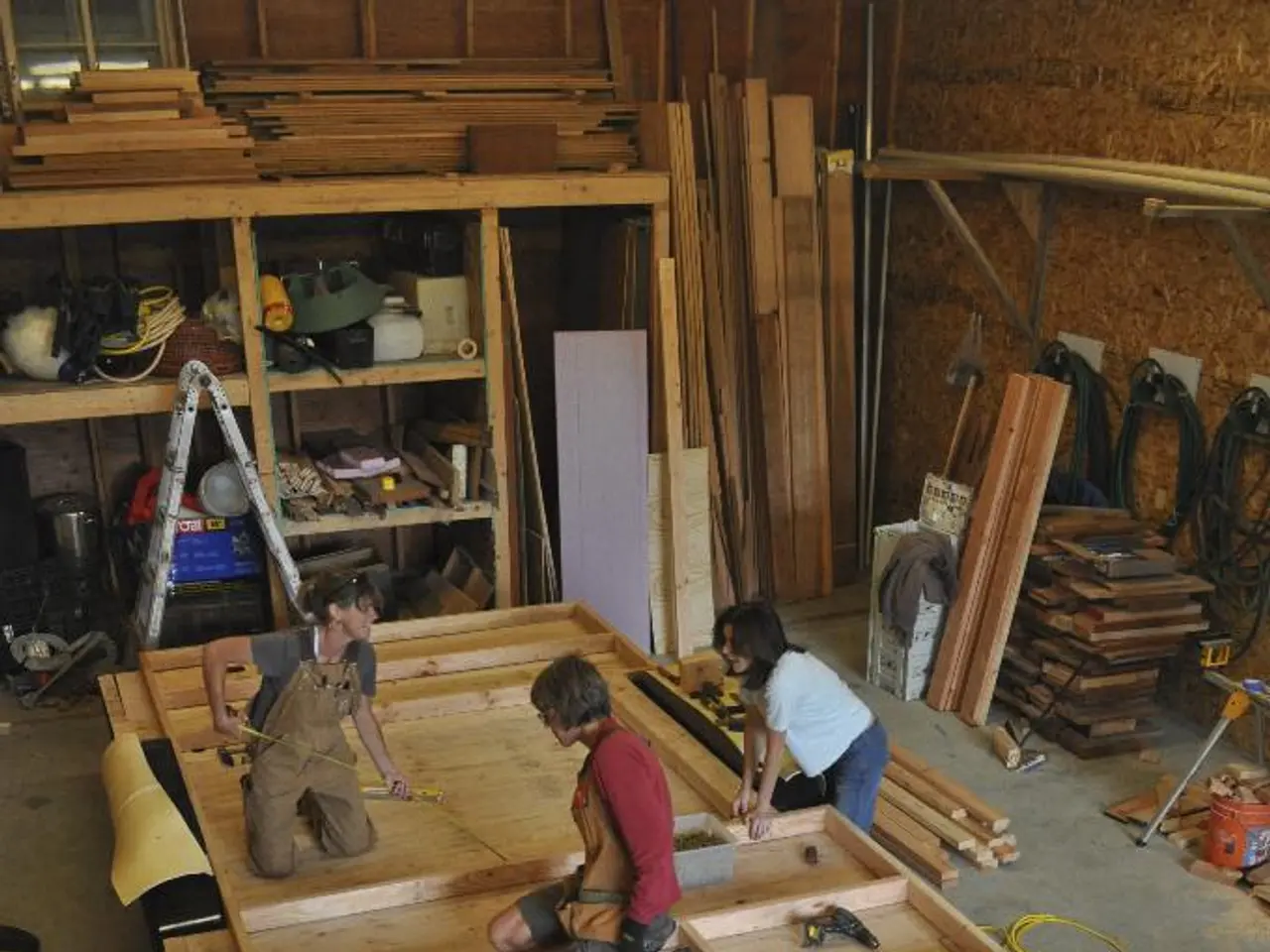Users on our OGM website express minimal enthusiasm for the newly introduced partial pension scheme.
Uncensored, Unfiltered Take on Austria's Partial Pension Reform
brace yourself, bucko, we're diving into the nitty-gritty of Austria's partial pension reform, a contentious issue that's dividing the political landscape like a hot knife through room-temperature butter.
From 2026 onwards, the federal government plans to cut spending in the pension sector. But does the folks in politics know what they're doing? The proposed measures are aimed at saving money, but expenses in the pension sector are expected to rise from approximately 33 to 38.3 billion euros by 2029, all depending on whether the government can bring home the bacon with its suggested moves.
The partial pension, set to kick off in 2026, is anticipated to bring in 1.3 billion by 2029—a figure heavily reliant on the number of folks jumping aboard the bandwagon. need more deets on partial pension? It's a scheme that allows those of eligible age to work part-time while receiving partial pension benefits, in partnership with their employer.
Here's the kicker: the new partial pension arrangement replaces the old-age part-time work, now only available over three years instead of five and solely as a last resort when going into full pension isn't an option. plus, it's not as lucrative, as full pension after old-age part-time work will still be paid in full through AMS subsidies—something that doesn't apply to partial pension.
So, how do Austrians feel about this change? Johannes Klotz, data wiz at OGM, ain't exactly painting a rosy picture: "Support for partial pension is surprisingly low compared to the previous old-age part-time work, with FPÖ supporters rejecting it, but also a clear majority of SPÖ supporters." Only 39 percent of respondents back the savings measure. That's right—three-quarters of FPÖ voters and more than half of SPÖ voters deem the partial pension unfair, while ÖVP (69 percent) and NEOS (57 percent) took a more favorable stance.
As for the level of interest in partial pension, it's not exactly off the charts, either. Just 16 percent are "very interested," with another 17 percent "somewhat interested." The rest, a whopping 67 percent, are either mildly interested or not at all, with FPÖ voters showing the least interest and NEOS voters leading the pack.
Take these findings with a grain of salt, as the sample size is relatively small (145 respondents, with the survey question aimed exclusively at those above 50 years old). Moreover, another reform on the horizon has garnered even more skepticism: the government's ambition to incentivize working beyond the pension age. "Working beyond the pension age is greeted even more coolly than the partial pension, with only 12 percent of respondents over 50 being very interested," says Klotz. SPÖ voters are particularly reserved in this regard.
The lowdown? Older Austrians aren't exactly lining up to embrace partial retirement and tax-free additional income, as more persuasion is needed to win them over, according to Klotz. The acceptance of the partial pension, already a "relatively cautious measure for pension reform," is modest, with politics itself bearing some of the blame for this, as decisions tend to materialize abruptly and unpredictably, as in the case of the Hackler regulation[1][2][3].
Klotz recommends adjusting future reforms to account for occupational groups rather than treating everyone as equals. Since people in physically and mentally demanding jobs with low incomes are more likely to lose their jobs and face reduced work capacities earlier, these individuals should be prioritized in pension reform initiatives to achieve the ultimate goal of slowing down the increase in pension spending[1][2][3].
Wögerer defends partial retirement: "Early retirement is simply also very expensive"
[1] https://www.wirtschaftsblatt.at/gesellschaft/prominente/Woegerer-verteidigt-Teilpension-Tag-Spiegel-33414627[2] https://www.trs24.at/news/wirtschaft/teilpension-in-oesterreich-ueber-50-jahre-verhaeltnis-neuaner-zu-altern-weller-33086059[3] https://www.krone.at/wirtschaft/teilpension_in_oesterreich_根据新计划,奥地利将在2026年开始减 Budget_aus _der_Rente.html
- The proposed policy-and-legislation for Austria's partial pension reform is expected to save money but expenses in the finance sector are anticipated to rise.
- Political support for the partial pension is surprisingly low, particularly among FPÖ and SPÖ voters, suggesting general-news interest in the issue may also be low.
- In order to increase acceptance of the partial pension, Johannes Klotz suggests adjusting future reforms to account for occupational groups, prioritizing those in physically and mentally demanding jobs with low incomes.




